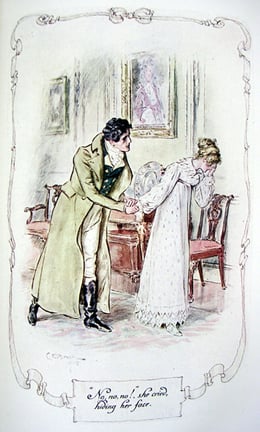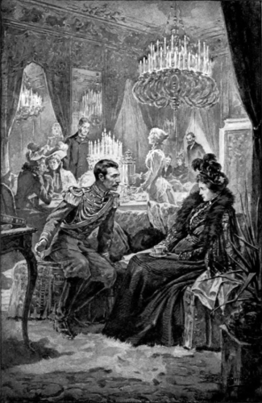Lust within the context of the deadly sin refers to an intense and inordinate desire for sexual gratification.
Our current culture’s belief in the harmlessness of casual sex, the constant sexual references and suggestions in media, the availability of internet pornography, and the frequent promotion of sexual gratification as a healthy and fulfilling end in itself have made lust a prevalent deadly sin in contemporary Western Culture.
Moreover, lust is the root cause of infidelity, promiscuity, licentiousness, and sexual addictions. As such, lust frequently is the cause of broken relationships, broken marriages, unsuccessful marriages, and unsuccessful family life, along with their deep and oftentimes devastating negative emotional consequences.
However, lust isn’t just a problem in the 21st century. Both ancient and modern literature exemplify the disastrous consequences of lust that are still possible today.
The ‘Iliad’ and the Sin of Lust That Starts a War
Some of the effects of lust are blindness of mind, thoughtlessness, inconstancy, and rashness. The plot of Homer’s “Iliad” moves on these very effects. For instance, the context of the story is that of Paris, Prince of Troy, who names Aphrodite (the Goddess of Love) the fairest of three Goddesses for the award of Helen—a married woman.
Helen’s husband, Menelaus, wages war upon Troy in order to regain his bride and avenge Paris.
Lust continues within the plot, plaguing both sides in the war. For most of the epic poem, Paris stays in his chambers with Helen instead of fighting alongside his brothers. Likewise, Achilles, enraged by his mistress, Briseis, who has been taken from him, chooses to sulk inside his tent instead of fighting.In the “Iliad” story, lust even plagues the gods. Hera (wife of Zeus), still angry with Paris for choosing Aphrodite as the most beautiful, sides with the Greeks in the war. Thus, to aid the Greeks, Hera, through seduction, distracts her husband from his neutral position of watching over both sides.
By the end of the poem, Paris’ lust not only starts a war but causes him a mortal wound and burns his city to the ground.
While on a day-to-day basis, lust might not start wars on cities, it can cause feuds in families, divorce, and other catastrophic consequences within relationships with those we care for.
Jane Austen and the Deadly Sin of Lust That Deters
In her writing, Jane Austen often illustrates the negative effects of lust. Two of Austen’s villains chase lust instead of sticking with their intended goals, and both end up quite dissatisfied.
While perusing “Mansfield Park,” the reader might be somewhat fooled by Henry Crawford’s seemingly gentlemanly pursuit of the heroine, Fanny Price. However, Henry becomes distracted and runs off with a married woman, destroying all hope (if there ever was any) of Fanny’s affection.
Moreover, George Wickham, the villain of Pride and Prejudice, seeks to marry for mercenary reasons. Ultimately, his desires get the better of him, and he runs off with Lydia Bennett, annihilating his hopes for a financially beneficial union.
Austen shows that lust is hard to resist, even when one truly tries. In today’s culture, sexual stimulation (from sexual activity to pornography) is frequently addictive. This allows sexuality to become an end in itself, leading one away from higher purposes and intentions.
Tolstoy and the Sin of Lust That Ruins All
Lastly, and perhaps the best and most realistic example of the devious effects of lust in literature, is that of Tolstoy’s Anna Karenina.
Anna, a married woman, engages in what seems to be an exciting affair with the handsome Captain Vronsky. On account of the affair, Anna betrays her friends, family, and her child. She loses all social status in Russia, whereas Vronsky, being a man, does not. Anna’s social alienation causes her to become lonely and jealous, and thus, she demands all of Vronsky’s time.
Eventually, as she looks around her, she can only see the bad news–the bad in her life, her friends, and even people simply walking down the street. In a final act of desperation, she throws herself in front of a train, ending her life.
How to Fight the Deadly Sin of Lust in Our Own Lives
Of course, lust does not always lead to complete destruction, suicide, murder, and/or physical injury. However, many truths are woven throughout Anna’s story and the stories from Homer and Austen that are still relevant today.
First, one must see through the false “beauty” of unrestrained romantic passion. Lust blinds one to its negative and evil consequences, but the blindness ends when dark consequences set in.
Secondly, one must challenge the urges of lust at the beginning when they may be strong but still manageable. Allowing those urges to grow will almost always, as in the case of Anna, become unmanageable—and when this happens, blindness will ensue, followed by inauthenticity to self and the hypocrisy of blaming others for our misdeeds.
Thirdly, the mythical world created by unrestrained romantic passion will almost certainly end hurtfully. This is caused by the narcissism of one or both parties, the jealousies and anger generated by inauthenticity and infidelity, and the confusion and destructiveness caused by the rupture of commitments and families.
A romantic relationship aims to elevate intimate friendship to its highest level and make the intimate friend a priority through an exclusive and life-long commitment. It is to enter into a mutually supportive and collaborative common cause toward family and other positive objectives that will serve not only friends but also the community, culture, church, and the Kingdom of God.
Lust does just the opposite. Let us heed the warnings in literature and avoid lust at all possible costs.
To learn more about this deadly sin (and how to overcome it), check out Fr. Spitzer’s paper, “The Deadly Sins."



